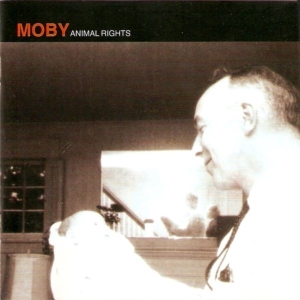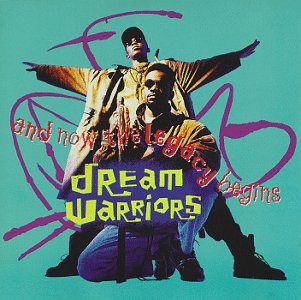
Richard Melville Hall, known professionally as Moby, is an American musician, songwriter, singer, producer, and animal rights activist. He has sold 20 million records worldwide. AllMusic considers him to be "among the most important dance music figures of the early 1990s, helping bring dance music to a mainstream audience both in the United States and the United Kingdom".

Animal Rights is the fourth studio album by American musician Moby, released on September 23, 1996. The album was a temporary style shift from the electronica music that Moby had previously released to an alternative rock sound influenced by the hardcore punk music that he had enjoyed as a teenager. The album was released to mediocre critical reviews and commercial performance.

Electric Ladyland is the third and final studio album by the Jimi Hendrix Experience, released in October 1968. A double album, it was the only record from the Experience with production solely credited to Hendrix. The band's most commercially successful release and its only number one album, it was released by Reprise Records in the United States on October 16, 1968, and by Track Records in the UK nine days later. By mid-November, it had reached number 1 on the Billboard Top LPs chart, spending two weeks there. In the UK it peaked at number 6, where it spent 12 weeks on the British charts.

Experience is the debut studio album by English electronic music group the Prodigy. It was first released on 28 September 1992 by XL Recordings in the United Kingdom and by Elektra Records in the United States.

Fear of Music is the third studio album by American rock band Talking Heads, released on August 3, 1979, by Sire Records. It was recorded at locations in New York City during April and May 1979 and was produced by Brian Eno and Talking Heads. The album reached number 21 on the Billboard 200 and number 33 on the UK Albums Chart. It spawned the singles "Life During Wartime", "I Zimbra", and "Cities".

I Just Can't Stop It is the debut studio album by British ska band the Beat, released on 23 May 1980 by Go-Feet Records in the United Kingdom. It was released the same year in the United States on Sire Records under the band name The English Beat". In Australia, it was released on Go-Feet under the band name The British Beat.

Play is the fifth studio album by American electronic musician Moby. It was released on May 17, 1999, through Mute Records internationally and V2 Records in North America. Recording of the album began in mid-1997, following the release of Moby's fourth album, Animal Rights (1996), which deviated from his electronica style; Moby's goal for Play was to return to electronica, blending downtempo with blues and roots music samples. Originally intended to be his final record, the album was recorded at Moby's home studio in Manhattan.

Everything Is Wrong is the third studio album by American electronica musician Moby, released on March 14, 1995, by record labels Mute in the United Kingdom and Elektra in the United States. It was released with a limited-edition bonus disc of ambient music titled Underwater.

Ambient is the second studio album by American electronica musician Moby, released in August 1993 by record label Instinct.

The Food Album is a compilation album by American singer-songwriter "Weird Al" Yankovic, released on June 22, 1993, by Scotti Brothers Records. The release features ten of Yankovic's song parodies, all of which pertain to food. A similar album, The TV Album, which features songs entirely about television, would be released two years later.

"Night Time Is the Right Time" or "The Right Time" is a rhythm and blues song recorded by American musician Nappy Brown in 1957. It draws on earlier blues songs and has inspired popular versions, including those by Ray Charles, Rufus and Carla, and James Brown, which reached the record charts. Creedence Clearwater Revival recorded a version of the song on their 1969 album, Green River.

Rock Bottom is the second solo album by former Soft Machine drummer Robert Wyatt. It was released on 26 July 1974 by Virgin Records. The album was produced by Pink Floyd's drummer Nick Mason, and was recorded following a 1973 accident which left Wyatt a paraplegic. He enlisted musicians including Ivor Cutler, Hugh Hopper, Richard Sinclair, Laurie Allan, Mike Oldfield and Fred Frith in the recording.

What a Feelin' is the second studio album by American singer-songwriter Irene Cara. Released on November 2, 1983, this album is a continuation of the work that Cara began with producer Giorgio Moroder on the soundtrack to the 1983 film Flashdance. The dance-pop song she co-wrote with Moroder and Keith Forsey for the film, "Flashdance... What a Feeling", went to number one on Billboard magazine's Hot 100 and foreshadowed the style of this album, which was unlike her R&B-heavy debut. Although Cara was more accustomed to composing music, she relinquished most of those duties to Moroder here and shifted much of her songwriting focus to lyrics.

"Move (You Make Me Feel So Good)" is a song by American electronica musician Moby, with a chorus sampling from Loleatta Holloway's 1980 song "Love Sensation". It was first released as the title track on Moby's extended play Move, which was issued on August 31, 1993, as his first release on Mute Records in the United Kingdom and on Elektra Records in the United States. It hit number one on the US Billboard Hot Dance Music/Club Play chart and number 21 on the UK Singles Chart.

I Am the Blues is the sixth studio Chicago blues album released in 1970 by the well-known bluesman Willie Dixon. It is also the title of Dixon's autobiography, edited by Don Snowden.

And Now the Legacy Begins is the debut album of Canadian hip hop duo Dream Warriors, released April 23, 1991. It was released worldwide on Island Records and in the United States on sub-label 4th & B'way Records. The album is regarded as one of the finest alternative hip hop records of the golden era.

Early Underground is a compilation album by American electronica musician Moby. It was released in March 1993 by Instinct Records. The album consists of tracks previously released by Moby under other pseudonyms such as Barracuda, Brainstorm, UHF, and Voodoo Child. A similar compilation, Instinct Dance, was released two years earlier by Instinct.

Wait for Me is the ninth studio album by American electronica musician Moby. It was released on June 29, 2009 by Little Idiot and Mute.
"Speakerphone" is a song by Australian singer Kylie Minogue for her tenth studio album X (2007). It was produced by Bloodshy & Avant duo Christian Karlsson and Pontus Winnberg, who co-wrote it with Henrik Jonback and Klas Åhlund. The song featured dance, electronic, and funk elements. It heavily used Auto-Tune and vocoder, which caused some critics to liken it to music by Britney Spears and Daft Punk. "Speakerphone" received mixed responses from critics. The song appeared on the Canadian Hot 100 and the Hot Canadian Digital Singles Billboard charts.

Guitar is a 1986 solo studio album by American jazz guitarist Sonny Sharrock. He recorded the album with producer Bill Laswell at RPM Sound Studios in New York City. As the project's sole instrumentalist, Sharrock performed and overdubbed his guitar improvisations onto other sections of a song he had recorded beforehand.


















